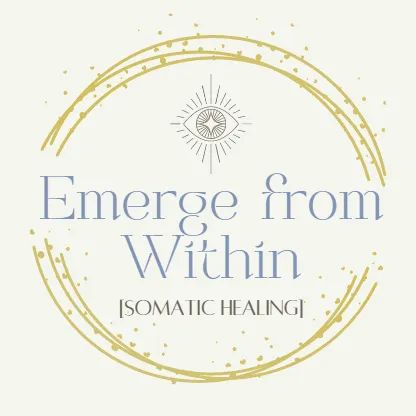
The Science Behind Breathwork and Its Powerful Benefits
by Alyssa Hutchinson
. . .
Breathwork is a practice that has been used for centuries in various cultures around the world. The origins of breathwork can be traced back to ancient India, where it was known as pranayama. Pranayama was used as a part of yoga, a spiritual practice that aimed to connect the mind, body, and spirit. This breathing technique was believed to help individuals control their breath, which in turn would help them achieve a state of calmness and relaxation.
Breathwork was also used in ancient China, where it was known as Qigong. Qigong was a traditional Chinese medicine practice that aimed to balance the flow of energy in the body. This practice included controlled breathing exercises that were believed to help improve overall health and wellbeing.
In addition to India and China, breathwork was also practiced in ancient Greece. The Greek philosopher, Pythagoras, believed that breath was the source of life and that controlling one's breath was essential for achieving a state of balance and harmony.
Overall, the ancient roots of breathwork demonstrate that controlled breathing has been an important aspect of various cultures throughout history. Today, breathwork continues to be used as a tool for improving physical, emotional, and spiritual wellbeing.
The style of breathwork that I am trained in has been developed by Samantha Skelly, Founder of Pause Breathwork. Her style is rooted in healing and transformation with a trauma-informed approach. This means there are no rigid rules or structures; the body leads the way.
So let’s dive into the science behind breathwork and explore some of its amazing benefits.
Breathwork 101
First, let’s discuss the basics of breathwork. Breathing is an automated process that happens without us needing to think about it. It’s essential for life—our body needs oxygen to survive and function properly. However, we can also take conscious control over our breath and use it to relax and heal our bodies. That is what breathwork does; it involves conscious breathing techniques that are known to bring about physical, mental, emotional, and spiritual benefits.
This can look like just a few deep belly breaths, or a 30 or 60 minute guided session. A 30 minute session can shift our energetic state, releasing any stress or tension while we create a sense of feeling grounded. While a 60 minute session allows for us to shift our consciousness to access fears, blocks, emotions, traumas - feeling that energy and transmuting and/ or releasing it.
The Physiological Benefits of Breathwork
From a physiological standpoint, there are many benefits of breathwork. Taking deep and slow breaths into the belly down regulates the nervous system, bringing us out of “fight or flight” and into “rest and digest”. Which means reducing stress hormones like cortisol while increasing endorphins (the “feel good” hormone) in the bloodstream [1]. When done regularly over time, this can result in reduced levels of anxiety and improved overall mood [2]. Additionally, studies have found that regular practice of conscious breathing can improve cardiovascular health by lowering blood pressure and improving lung capacity [3].
The Psychological Benefits of Breathwork
On top of these physiological benefits, there are also psychological benefits associated with regular practice of conscious breathing techniques. Research has found that mindful breathing helps reduce rumination (obsessive worrying), which can be beneficial for those who suffer from depression or anxiety [4]. Additionally, studies have shown that conscious breathing increases mindfulness, the ability to be aware in the present moment, which can lead to improved focus and increased emotional regulation [5].
Additional benefits of breathwork include:
» Deepens your relationship with your body.
» Changes your response to emotions.
» Reduces toxins in your body.
» Revitalizes your organs.
» Better access to your intuition & higher self.
» Raises your vibration by tapping into universal life force energy.
Overall, I think the science behind breathwork is fascinating! From reducing stress hormones to improving lung capacity and increasing mindfulness – there are so many scientifically-backed benefits associated with incorporating breathwork into your daily routine.
Mindful breathing can be used as a tool for self-care; it can help reduce stress levels while also boosting your mood and improving overall well-being.
So next time you feel overwhelmed or need some time out for yourself – take some nice deep breaths! You may just find that the breath has more power than you thought it did.
Sources
[1] Neurol Sci. 2017 Mar;38(3):451-458. doi: 10.1007/s10072-016-2790-8. Epub 2016 Dec 19. https://pubmed.ncbi.nlm.nih.gov/27995346/
[2] Sci Rep. 2021 Sep 29;11(1):19267. https://pubmed.ncbi.nlm.nih.gov/34588511/
[3] Breathe (Sheff). 2017 Dec; 13(4): 298–309. https://www.ncbi.nlm.nih.gov/pmc/articles/PMC5709795/
[4] Frontline Gastroenterol. 2013 Jul; 4(3): 232–236. Published online 2013 Apr 25.
https://www.ncbi.nlm.nih.gov/pmc/articles/PMC5369805/
[5] Behav Brain Res. 2019 Jan 1;356:208-220. doi: 10.1016/j.bbr.2018.08.023. Epub 2018 Aug 25. https://pubmed.ncbi.nlm.nih.gov/30153464/



